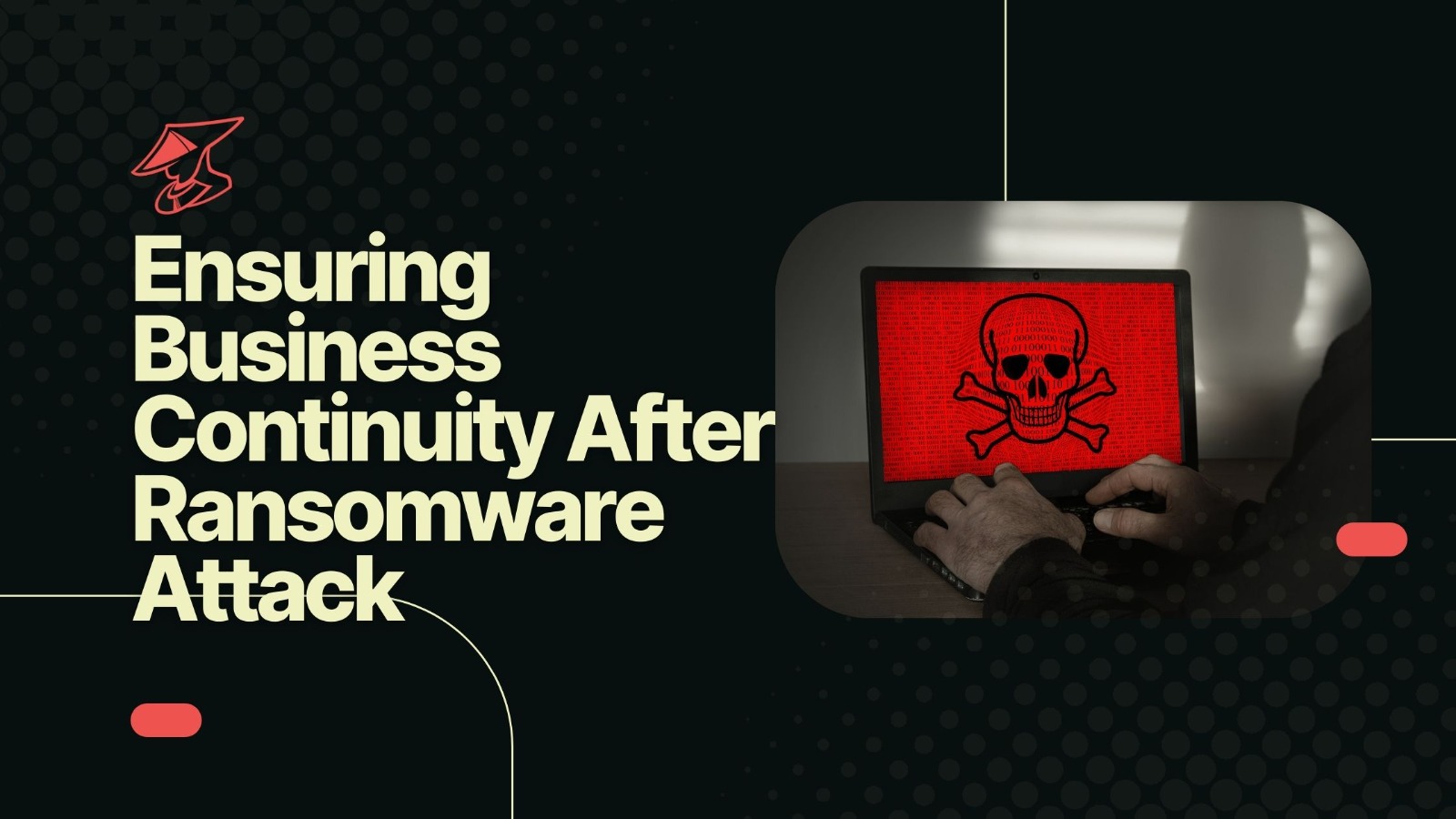Surviving the Ransomware Onslaught: Ensuring Business Continuity Amid Threats
by Ben Brown | 01/18/2024

by Ben Brown | 01/18/2024

Ransomware attacks have, unfortunately, become a prevalent menace in today's digital landscape. These malicious software attacks encrypt a victim's files, holding them hostage until a ransom is paid. For businesses, the impact can be crippling, disrupting operations, causing financial losses, and damaging reputations. The question isn't just about how to prevent ransomware but also about ensuring that a company can continue to operate should an attack occur. In this post, we highlight four pivotal security practices crucial for maximum protection and business continuity.
Implementing a rigorous backup strategy, where data is regularly backed up to both on-site and off-site (preferably cloud-based) storage solutions.
If ransomware compromises a company's files, having updated backups ensures that data can be restored without yielding to ransom demands. Regularly testing these backups for integrity is equally vital to ensure that they can be effectively used in a recovery scenario.
Deploying a multi-faceted security approach that integrates firewalls, intrusion detection systems, anti-malware tools, and email filtering solutions.
By having multiple security layers, the chances of ransomware penetrating all of them diminish significantly. Even if one layer is compromised, others act as additional barriers, providing more opportunities to detect and neutralise the threat before it takes hold.
Regularly educating staff about the latest ransomware threats and tactics, teaching them how to recognise suspicious activities, and instituting protocols for reporting potential threats.
Humans are often the weakest link in the security chain. By ensuring that employees are vigilant and well-informed, businesses can significantly reduce the risk of a ransomware attack originating from a simple mistake, like clicking on a malicious email link.
Developing and regularly updating a comprehensive incident response plan, detailing steps to take in the event of a ransomware attack, from initial detection to recovery and post-incident analysis.
Having a well-orchestrated response plan ensures that, in the event of an attack, the company can act swiftly and decisively. Rapid response can mitigate the impact, reduce downtime, and speed up recovery. Post-incident analysis further aids in refining security measures and understanding vulnerabilities.
In the age of digital threats, ransomware stands out as a particularly insidious adversary. While preventing such attacks entirely might be a tall order, businesses can significantly bolster their defences and resilience through proactive measures. Ensuring business continuity amidst such threats is not merely about having advanced tools but about cultivating a holistic security culture, where protection, preparedness, and adaptability converge.
By embedding these practices into their operational DNA, companies can navigate the tumultuous waters of ransomware threats, ensuring not just survival, but continued growth and prosperity.
Start scanning your projects for free. You will get a free breakdown of your security status. Start securing your future now.
Get started